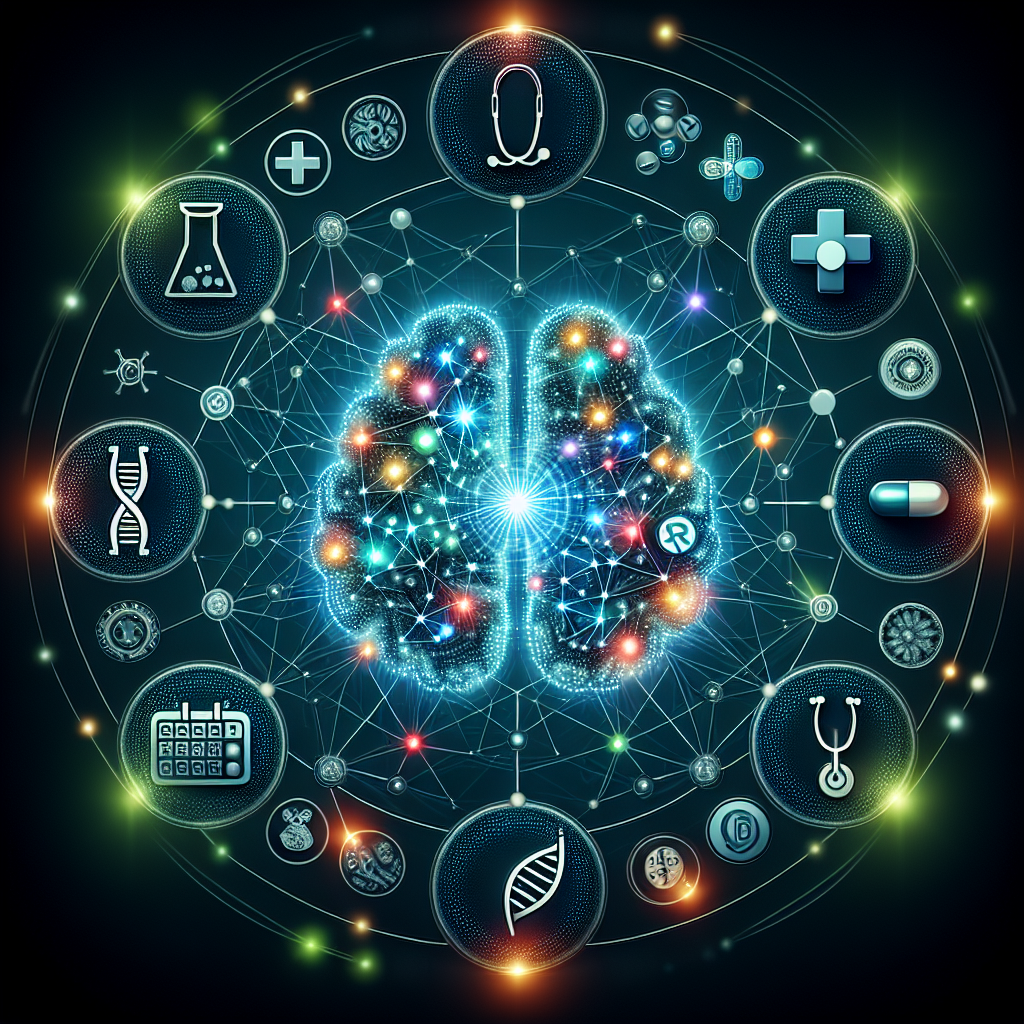Artificial General Intelligence (AGI) is an exciting and rapidly advancing field that is revolutionizing various industries, including healthcare. In recent years, the use of AI in healthcare has become increasingly prevalent, with the potential to transform the way medical professionals diagnose, treat, and manage patient care. This article will explore how AGI is revolutionizing medicine, the benefits and challenges of using AI in healthcare, and the future implications of this technology.
AGI in Healthcare: How AI is Revolutionizing Medicine
Artificial Intelligence (AI) refers to the simulation of human intelligence processes by machines, particularly computer systems. AGI, on the other hand, aims to develop machines that can perform any intellectual task that a human can do. This level of intelligence has the potential to significantly impact the healthcare industry by improving the efficiency and accuracy of medical diagnosis and treatment.
One of the key benefits of AGI in healthcare is its ability to analyze vast amounts of data quickly and accurately. Medical professionals can input patient information, such as symptoms, medical history, and test results, into AI systems, which can then analyze this data to generate insights and recommendations. This can help doctors make more informed decisions about patient care, leading to better outcomes for patients.
AI can also assist in medical imaging analysis, such as interpreting X-rays, MRIs, and CT scans. By using machine learning algorithms, AI systems can detect patterns and anomalies in medical images that may be difficult for human radiologists to identify. This can help improve the accuracy of diagnoses and reduce the likelihood of errors.
In addition to diagnosis and imaging analysis, AI can also be used to personalize treatment plans for patients. By analyzing a patient’s genetic information, medical history, and other relevant data, AI systems can recommend personalized treatment options that are tailored to the individual’s specific needs. This can lead to more effective treatments and better outcomes for patients.
Another area where AI is revolutionizing healthcare is in predictive analytics. By analyzing patient data and identifying patterns and trends, AI systems can predict the likelihood of certain medical conditions or events, such as hospital readmissions or infections. This can help healthcare providers intervene early and prevent adverse outcomes, ultimately improving patient care and reducing healthcare costs.
Despite the numerous benefits of using AI in healthcare, there are also challenges and concerns that need to be addressed. One of the main challenges is ensuring the accuracy and reliability of AI systems. While AI has the potential to improve medical diagnosis and treatment, there is always a risk of errors or biases in the algorithms. It is essential for healthcare providers to validate and test AI systems rigorously to ensure their effectiveness and safety.
Another concern is the ethical implications of using AI in healthcare. For example, there are concerns about patient privacy and data security when using AI systems to analyze sensitive medical information. Healthcare providers must prioritize patient confidentiality and adhere to strict data protection regulations to ensure the ethical use of AI technology.
Furthermore, there is a need for healthcare professionals to be trained in using AI systems effectively. While AI has the potential to streamline medical processes and improve patient care, it is essential for doctors and nurses to understand how to interpret and apply the insights generated by AI systems. Training programs and educational resources should be provided to healthcare professionals to ensure they can leverage AI technology effectively.
Despite these challenges, the future implications of using AGI in healthcare are promising. As AI technology continues to advance, we can expect to see more sophisticated AI systems that can perform complex medical tasks with a high level of accuracy. This has the potential to revolutionize the way healthcare is delivered, leading to more personalized and efficient patient care.
FAQs:
1. How is AI used in healthcare?
AI is used in healthcare to assist in medical diagnosis, imaging analysis, personalized treatment planning, and predictive analytics. AI systems can analyze vast amounts of patient data to generate insights and recommendations for medical professionals, leading to improved patient care and outcomes.
2. What are the benefits of using AI in healthcare?
The benefits of using AI in healthcare include improved accuracy and efficiency in medical diagnosis and treatment, personalized treatment planning, and predictive analytics to prevent adverse outcomes. AI technology has the potential to revolutionize the way healthcare is delivered, leading to better patient care and outcomes.
3. What are the challenges of using AI in healthcare?
Some challenges of using AI in healthcare include ensuring the accuracy and reliability of AI systems, addressing ethical concerns about patient privacy and data security, and training healthcare professionals to use AI technology effectively. It is essential for healthcare providers to validate and test AI systems rigorously and prioritize patient confidentiality and data protection.
4. What are the future implications of using AGI in healthcare?
The future implications of using AGI in healthcare are promising, with the potential for more sophisticated AI systems that can perform complex medical tasks with a high level of accuracy. AI technology has the potential to revolutionize the way healthcare is delivered, leading to more personalized and efficient patient care.
In conclusion, AGI is revolutionizing the healthcare industry by improving the accuracy and efficiency of medical diagnosis and treatment. While there are challenges and concerns that need to be addressed, the future implications of using AI in healthcare are promising. As AI technology continues to advance, we can expect to see more sophisticated AI systems that can transform the way healthcare is delivered, leading to better patient care and outcomes.

